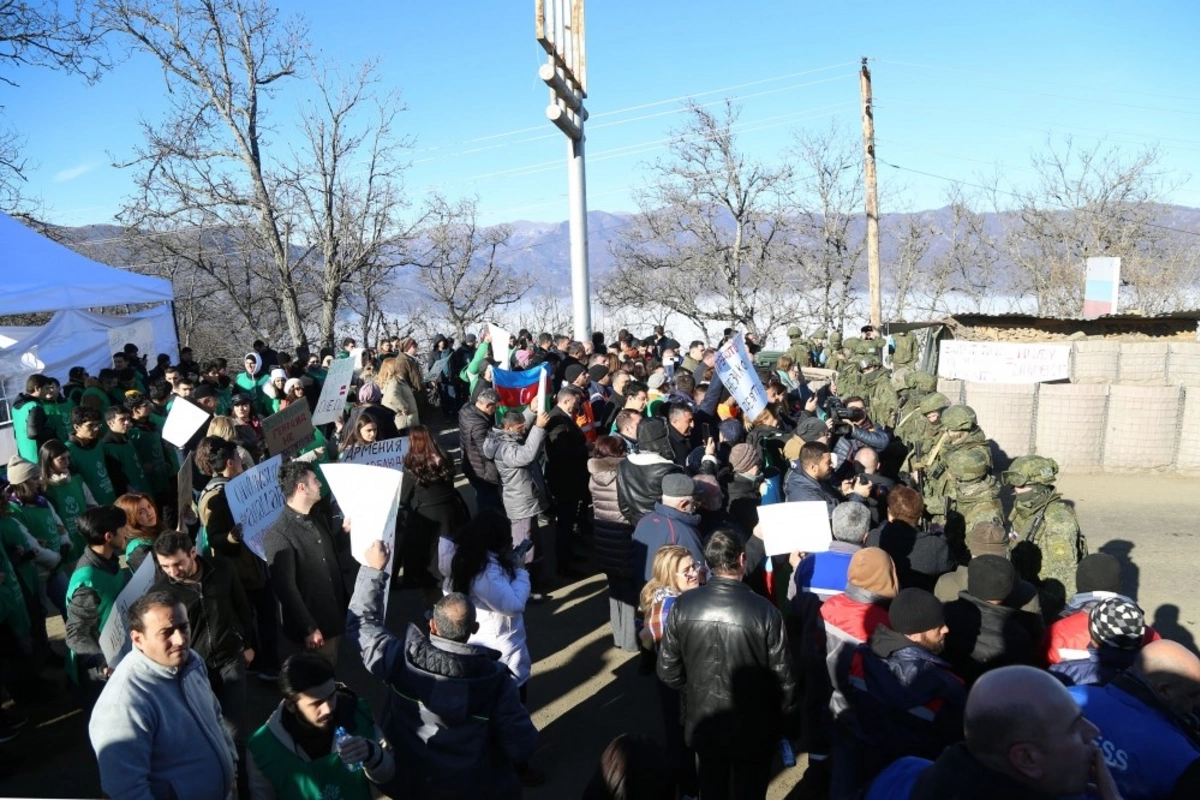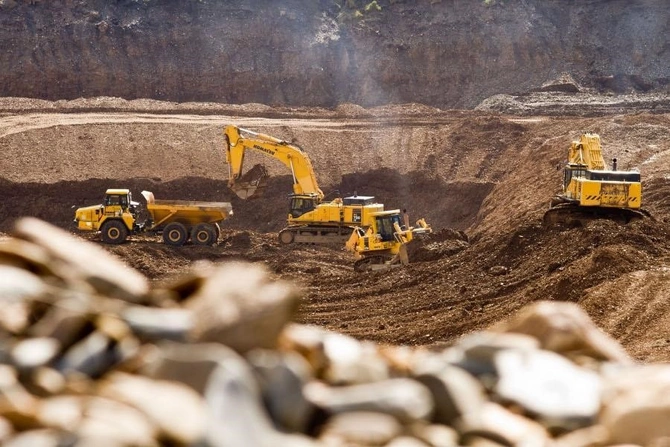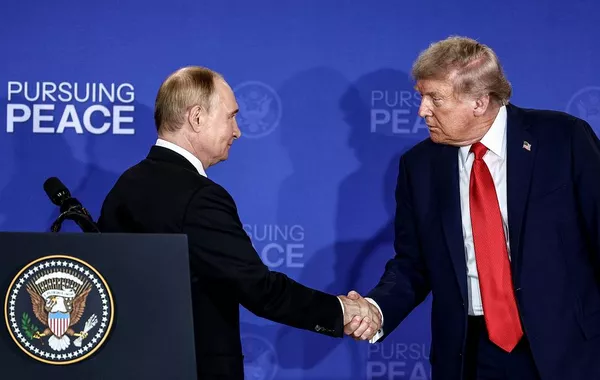
Lachin, Karabakh, Azerbaijan, Armenia
Image: azertag.az
For a third day, traffic has been interrupted on the road that replaced the former Lachin highway by groups of Azerbaijani ‘environmentalist protesters.’
The Lachin highway, also known as the “Lachin Corridor,” though re-routed earlier this year, is still the only road link between Armenia and rump-NK, the area of Azerbaijan in which Armenians still live (with the protection of Russian Peacekeepers1). So for residents within the former breakaway territory, any interruption of traffic on that route is seen as a potentially existential threat.
Conversely, for Azerbaijan, frustrated with the slow progress towards a full peace settlement, threats of restricting travel on the route are potentially powerful tools, albeit ones that need to be used with care to avoid serious repercussions and international backlash.
The current dispute started on Saturday, December 10, when Azerbaijan claimed that illegal activities were being pursued in two mining sites on land still under the de facto management of Armenians in rump-NK. These activities, claimed Baku, are causing adverse environmental impacts. Baku then complained in a diplomatic note that Russian peacekeepers didn’t take suitable precautions to ensure that its inspectors could reach the mine sites despite an agreement that had been hammered out.
Still unable to reach the mine, on Monday and Tuesday, Azerbaijanis took a novel response. This was a group of activists blocking the Lachin Highway near Shusha. The Azerbaijani press has referred to them as environmentalists and NGO members. At the same time, some analysts expressed doubts about whether a spontaneous public protest could be so swiftly organized in an area to which the general public has very limited access.
At face value, at least, Azerbaijan’s stated concern is over mining, whether for environmental or economic reasons.
After the 44-day Second Karabakh War of 2020, Azerbaijan regained access to many of the region’s lucrative mines, including part if not all of the Zod/Sotk gold mine that straddles the Armenia-Azerbaijan border. However, the somewhat depleted Qizilbulaq (Drmbon) gold mine and giant open-cast Demirli (Kashen) copper-molybdenum mine remained within rump-NK. Production stopped after the war, partly due to a crucial pumping station that fell on the other side of the dividing line between rump-NK and fully de-occupied Azerbaijan. In July 2022, Demirli was among the new concessions awarded, at least on paper, to Anglo Asian Mining, a company already very active in Azerbaijan and whose shareholders include a former chief of staff to US President George HW Bush. However, for now, the company notes that it “does not have access” to some of these concession areas.

Demirli and Qizilbulaq gold mines are both mines in rump-NK, the area of Karabakh where the Russian peacekeepers are now stationed.
Meanwhile, it seems that the mines might have restarted production under Armenian management, which would be economically significant and a slap in the face for Baku and giant open-cast Demirli (Kashen) copper-molybdenum mine remained within rump-NK. Production stopped after the war, in part due to a crucial pumping station which happened to fall the other side of the dividing line between rump-NK and fully de-occupied Azerbaijan. In July 2022 Demirli was amongst the new concessions awarded, at least on paper, to Anglo Asian Mining, a company already very active in Azerbaijan and whose shareholders include a former chief of staff to US President George HW Bush. However, for now the company notes that it “does not have access” to some of these concession areas. Meanwhile, it seems that the mines might have restarted production under Armenian management which would be economically significant and a slap in the face for Baku. Pre 2020 the two mines had contributed over US$38 million to the coffers of the unrecognised breakaway republic, the mines’ parent company claiming to have funded over 32% of the entity’s revenues. It’s likely that Baku doesn’t want a return of such revenues to Khankendi (known to Armenians as Stepanakert). However, the mining issue is only part of the equation. Baku is also concerned that Armenians have been laying landmines close to sections of the road adding to the urgency of demands to be allowed to inspect the route.. Likely, Baku doesn’t want a return of such revenues to Khankendi (known to Armenians as Stepanakert). However, the mining issue is only part of the equation. Baku is also concerned that Armenians have been laying landmines close to sections of the road, adding to the urgency of demands to be allowed to inspect the route.
For Yerevan, any closure of the said road, however brief, raises the spectre of isolation for around 120,000 Armenians. Some reports suggested that gas supplies had also been cut to Khankendi on December 13, with the Armenian press quick to use highly alarmist talk, going as far as to suggest that “Azerbaijan has adopted a policy of genocide.” Azerbaijan has denied shutting off the gas supply.
Late on Tuesday evening, Azerbaijan’s presidential policy assistant Hikmet Hajiyev tweeted a clarification regarding the protests, clarifying that now – according to his information sources – only trucks carrying mineral deposits were being stopped while “all civilian transport vehicles can move freely.” Meanwhile, he underlined that “Armenia must stop using [the] Lachin road for military purposes and transport of antipersonnel mines, transport of illegal minerals.” In a further tweet, Hajiyev appeared to place the blame for the “plunder of natural resources” upon the controversial shoulders of Ruben Vardanyan, who he calls a “criminal businessman.” Listed by Forbes as a “father of the Russian stock market” worth over US$1.3 billion, Vardanyan renounced his Russian citizenship in 2021 and has recently assumed the title of ‘Minister of State’ – something akin to Prime Minister – in the Armenian administrative apparatus of rump-NK (or Artsakh as it is known by Armenians).
An expert in this area, Thomas de Waal, suggests that “Azerbaijan has legitimate concerns” but that its agenda might be much bigger, worrying that Baku, as the dominant side in the stalled peace talks, could be planning to “use force to try and get concessions” that Armenia says it cannot meet.
An EU spokesperson called on the “Azerbaijani authorities to ensure freedom and security of movement along the corridor, in line with the trilateral statement of 9 November 2020,” suggesting dialogue be reached between the “parties involved.”
Cavid Qara, a leader of EcoFront (an independent Azerbaijani environmentalist group), commented that work was ongoing to document long-term Armenian “environmental terrorism” committed against Azerbaijan, but the idea of closing the Lachin Corridor road was a poor idea that was likely to be counter-productive.
On Wednesday, as the issue stretched into its third day, the commentaries from both sides continued to be starkly different.
In Khankendi, the Armenian authorities prepared for the possible declaration of martial law in rump-NK, while some Armenian news outlets suggested that its statements suggested that Azerbaijan was effectively withdrawing from the peace process. Seen from Baku, this is all a vast overreaction. Azerbaijani and Turkish press sources suggested that the Russian Peacekeepers were themselves instrumental in blocking traffic. Social media sources seemed to corroborate the claim with photos that show a trio of Russian trucks blocking the Shusha-Khankendi road. Meanwhile, Azerbaijani TV reports also appear to show that, at other times, humanitarian vehicles have been permitted to pass the barriers.
This series of insights leads some to wonder whether one subtext is Russia using the situation to regain from the EU more of its previous status as a regional power broker. Indeed, on December 9, the CIS leaders agreed to hold an informal extra summit in St Petersburg ‘before the new year’ on the margins of which fresh tri-lateral talks between Armenia, Azerbaijan and Russia are anticipated.
Share on social media
